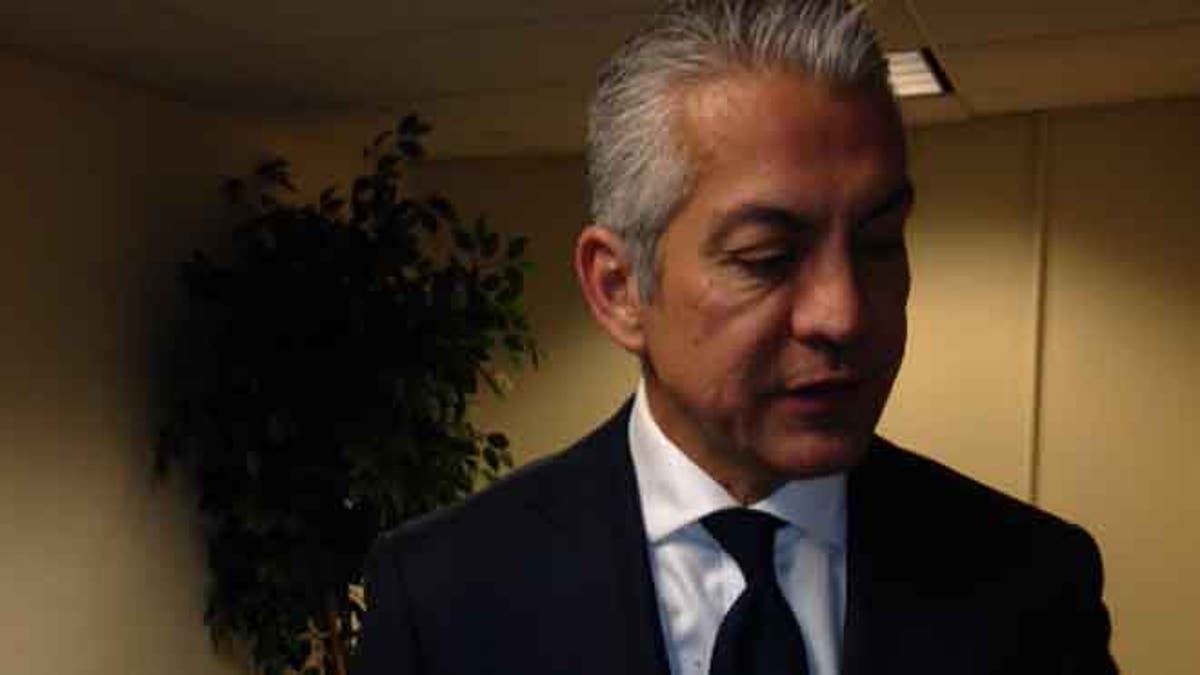
Javier Palomarez, president and CEO of the Hispanic Chamber of Commerce.
Washington, D.C. – The president of the U.S. Hispanic Chamber of Commerce questioned in a meeting with reporters Thursday whether Sen. Ted Cruz’s snubbing of the group’s annual summit this week marked an attempt to avoid Latinos as he runs for president.
“Ted Cruz chose not to come,” said a visibly displeased Javier Palomarez, president and CEO of the Hispanic Chamber of Commerce. “I hope it is not indicative that he’s backing away from the Hispanic community in order to get through the [GOP] primary.”
Other presidential hopefuls such as Senators Rand Paul, R-Ky, and Marco Rubio, R-Fla., also did not speak at the summit. But Palomarez said they had scheduling conflicts and that they had good relationships with the chamber, joining them at events other times of the year and that both men have attended past Hispanic Chamber summits.
Speakers at the summit on Thursday included Republican National Committee Chairman Reince Priebus, Reps. Mike Coffman, R-Colorado and Carlos Curbelo, R-Florida. On the Democratic side, speakers included Sen. Robert Menendez of New Jersey, and Reps. Nancy Pelosi and Linda Sanchez, both of California.
“If you’re trying to get to the White House without openly trying to engage the Hispanic community,” Palomarez said, “you’re not going to get there.”
To be sure, Cruz is an outspoken supporter of small businesses, who make up the bulk of USHCC’s membership.
In this week’s announcement that he is running for president, the Texas Republican asked Americans to "imagine" what he believed a conservative administration could accomplish.
"Think just how different the world would be. Imagine instead of economic stagnation, booming economic growth," Cruz said. "Instead of small businesses going out of business in record numbers, imagine small businesses growing and prospering. Imagine young people coming out of school with four, five, six job offers."
Efforts to get a comment from Cruz’s office about Palomarez's statements were unsuccessful.
In past presidential election cycles, the GOP’s conservative base has held increasing sway to the point of being able to shape the issues that arise in debates during the GOP primaries.
Republican presidential hopefuls have had to perform a sort of high-wire act, trying to get enough conservative support to do well during the GOP primary, but then appeal to a broader electorate – which includes crossover Democrats and Independents, besides moderate Republicans – for the general election.
While Cruz could do well in the primaries if conservatives retain their influence at that stage of the 2016 presidential campaign, many political observers say that his ironclad views against such things as Obamacare and immigration policies that would give breaks to undocumented immigrants will hurt him in the general election.
Cruz’s spokespersons in the past have taken exception to suggestions that he tries to distance himself from his roots. Cruz is Cuban on his father’s side.
Years ago, former New Mexico Gov. Bill Richardson was quoted in published reports as saying Cruz was not a true Hispanic because he did not support programs and policies that Latinos largely favor. Richardson later downplayed his comments.
Cruz supporters also said that it was unfair to expect all Latinos to hold the same positions or behave a certain way to prove their ethnic pride.
On the same day Cruz announced his candidacy for president, he released a Spanish-language campaign video on YouTube that touted his belief in the American Dream. The video, which used a Spanish-speaking narrator, omitted any mention of the senator’s opposition to President Obama’s Affordable Care Act and comprehensive immigration reform, which were both mentioned in the English-language campaign video.
Palomarez said he has had regular, productive discussions with GOP leaders in Congress about immigration and small business.
He said he realizes that it is important to be bipartisan and have a rapport with both parties in order to successfully push for legislation and programs that benefit Latinos.
"The Hispanic community, bar none, is important to the U.S. economy," Palomarez said. "Immigration reform is an economic imperative for the well-being of this nation."
Palomarez said he met with Sen. John Cornyn, a Texas Republican, on Wednesday to discuss Latinos and the economy and that the lawmaker understands the community's critical role in the Lone Star's small business world.
He also has met with Senate Majority Leader Mitch McConnell, a Kentucky Republican, but that discussion went less well, Palomarez conceded.
"Mitch is not as far along as John."












































